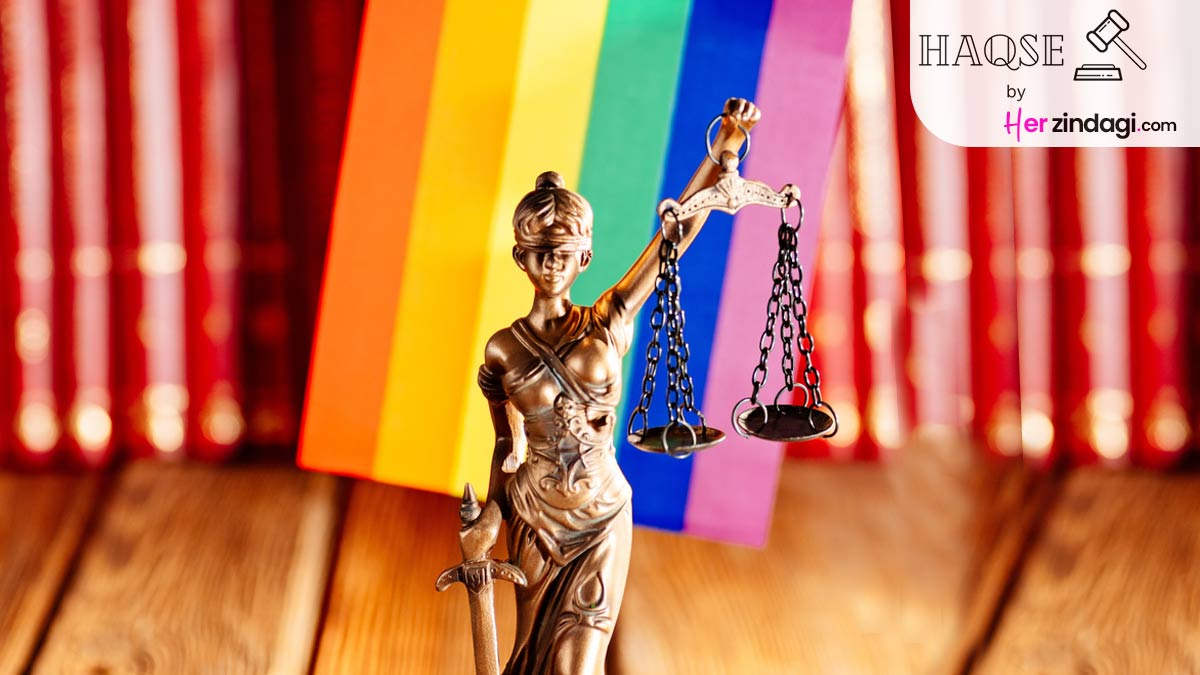
The LGBT community continues to struggle for equal rights and acceptance in society. Among the many reasons that contribute to these challenges for the members of this community is the lack of awareness of LGBT citizens of the country. With our series HaqSe, we have been bringing you explainers on the legal rights the citizens of India are entitled to. This time, we bring you a quick decoder on LGBT rights.
We spoke to Advocate Shikhani Shah Engineer, Criminal Lawyer, Bombay High Court, and asked her to share if the LGBT community is entitled to the same rights as every other citizen of the country. She said, “People from the LGBT community in India are entitled to all constitutional rights, including the liberties protected by the Constitution of India like every other citizen in the country.”

Lesbian, gay, bisexual, and transgender (LGBT) rights in India have no legal restrictions in the country. India awaits the Supreme Court's decision to legalise same-sex marriage but as of now, same-sex couples have equal cohabitation rights. In simpler terms, they can legally be in a live-in relationship.
As per Article 15 of the Constitution of India, no member can be discriminated against on the grounds of race, caste, sex, religion, or place of birth. On these grounds, no citizen can be restricted access to shops, public restaurants, hotels, and places of public entertainment; or the use of wells, tanks, bathing ghats, roads, and places of public resort maintained wholly or partly out of State funds or dedicated to the use of the general public as per Article 15.
Don't Miss: Pride Beyond Parades: Tracing the Remarkable Journey of Pride Month

People from the LGBT community can file a complaint against a discriminatory practice at the police station by filing an FIR like any other citizen of the country. In the case of a woman or a trans woman, only a female police officer can record the statement. A complaint can also be filed at forums like the National/State Human Right Commission, and the National/State Commission For Women. At such forums, a complaint can be registered regardless of your gender or sexual orientation. A complaint can also be registered with the Cyber Cell or the police against online crimes. (What is cyber stalking)
Domestic Violence
In case of domestic violence, all women including Transgender Women (regardless of their Certificate of Identity) can file a complaint under the Domestic Violence Act, 2005 against any kind of abuse by any family member.
Don't Miss: Taking A Stand: How To Be An Effective LGBTQ Ally
Psychological Violence
Members of the LGBT community often are victims of psychological violence. In case someone threatens to hurt them or blackmails them for money or favours, they can file an FIR against the person irrespective of their gender.
Sexual Violence
Sexual violence too is unfortunately common among the LGBT community. In the case of sexual crimes like rape, stalking, and inappropriate touching, trans women, women can file a complaint with the police regardless of how they identify themselves. Men or trans men, however, can't be victims of sexual violence under the law and can file an FIR under physical violence.
Also watch this video
Herzindagi video
Our aim is to provide accurate, safe and expert verified information through our articles and social media handles. The remedies, advice and tips mentioned here are for general information only. Please consult your expert before trying any kind of health, beauty, life hacks or astrology related tips. For any feedback or complaint, contact us at compliant_gro@jagrannewmedia.com.